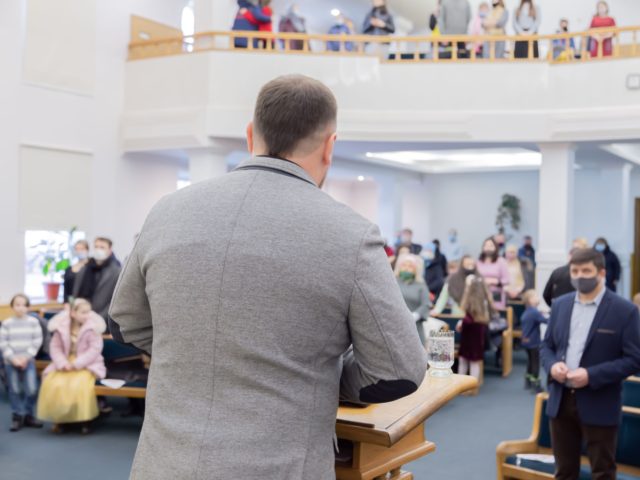A number of Christian churches active in Denmark are protesting proposed legislation that would require translated copies of foreign-language sermons to be submitted to government authorities for review.
The government has said the aim of the law is to “enlarge the transparency of religious events and sermons in Denmark, when these are given in a language other than Danish.”
According to Bitter Winter, the new law represents an effort to forestall possible terrorist activity by radical Islamists, but would aversely affect all religious bodies equally, including those that pose little risk of violence.
Leaders of major Christian churches have complained that the legislation would have disastrous effects on religious liberty as well as freedom of speech.
Bishop Robert Innes, who oversees the Anglican community across Europe, including Denmark, has written to the Danish prime minister, Mette Frederiksen, to complain of the “overly restrictive” limitation of freedom of expression contained in the law.
“I am sure it comes from a genuine concern about the security of the estate and the monitoring of all religious minorities who might be perceived as a security risk,” Bishop Innes told the Guardian newspaper. “I share the ambition of the Danish government to ensure safety and security and the desire that all religious organisations in Denmark conduct their act peacefully but to require translation of sermons into the national language goes too far. It goes in a concerning anti-liberal direction.”
“In a democratic society I would hope the government would strive for better cooperation with religious organisations than hastily resorting to legislation interfering with their freedoms,” he added.
For its part, the Council of Churches of Denmark, which represents Evangelicals in the country, called the proposed law “discriminatory and ill-considered,” noting that it would have a disproportionate effect on the poorer congregations.
Religious groups have the unpleasant feeling that they are “placed under general suspicion by this law,” said Sister Anna Mirijam Kaschne, the General Secretary of the Nordic Catholic Bishops Conference.
Cardinal Jean-Claude Hollerich, President of the Commission of the Bishops’ Conferences of Europe (COMECE), warned that the law “could impede the fundamental right to freedom of religion.”
The Cardinal said that the Danish law forms part of a broader, growing trend of neglect for the fundamental right to freedom of religion among EU member states.
While the goal of preventing radicalization and countering incitement to hatred and terrorism is laudable, the cardinal said, this must be pursued without unduly burdening churches and religious communities that are “averse and alien to such actions, acting in a spirit of peace and integration.”
Freedom of religion is among the foundations of the European Union, Hollerich said, and it “should be taken in consideration by member states when devising anti-radicalization and anti-terrorism policies.”
In the coming days, Denmark’s parliament is slated to debate the legislation, known as the law on sermons in languages other than Danish, which enjoys broad support both in the Parliament and in public opinion, fueled by growing concern over a perceived rise of Islamist extremism among the 270,000 Muslims who live in Denmark.

COMMENTS
Please let us know if you're having issues with commenting.